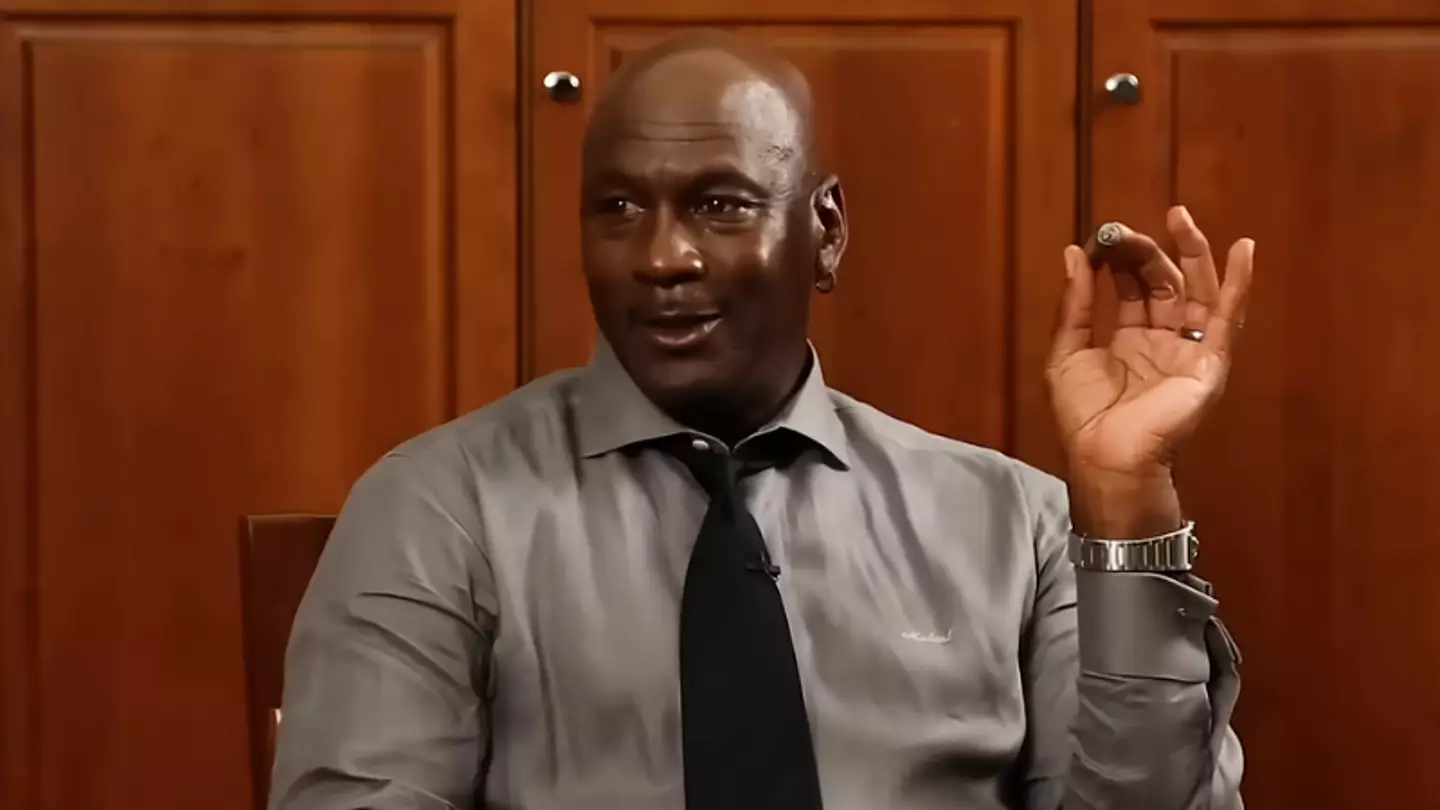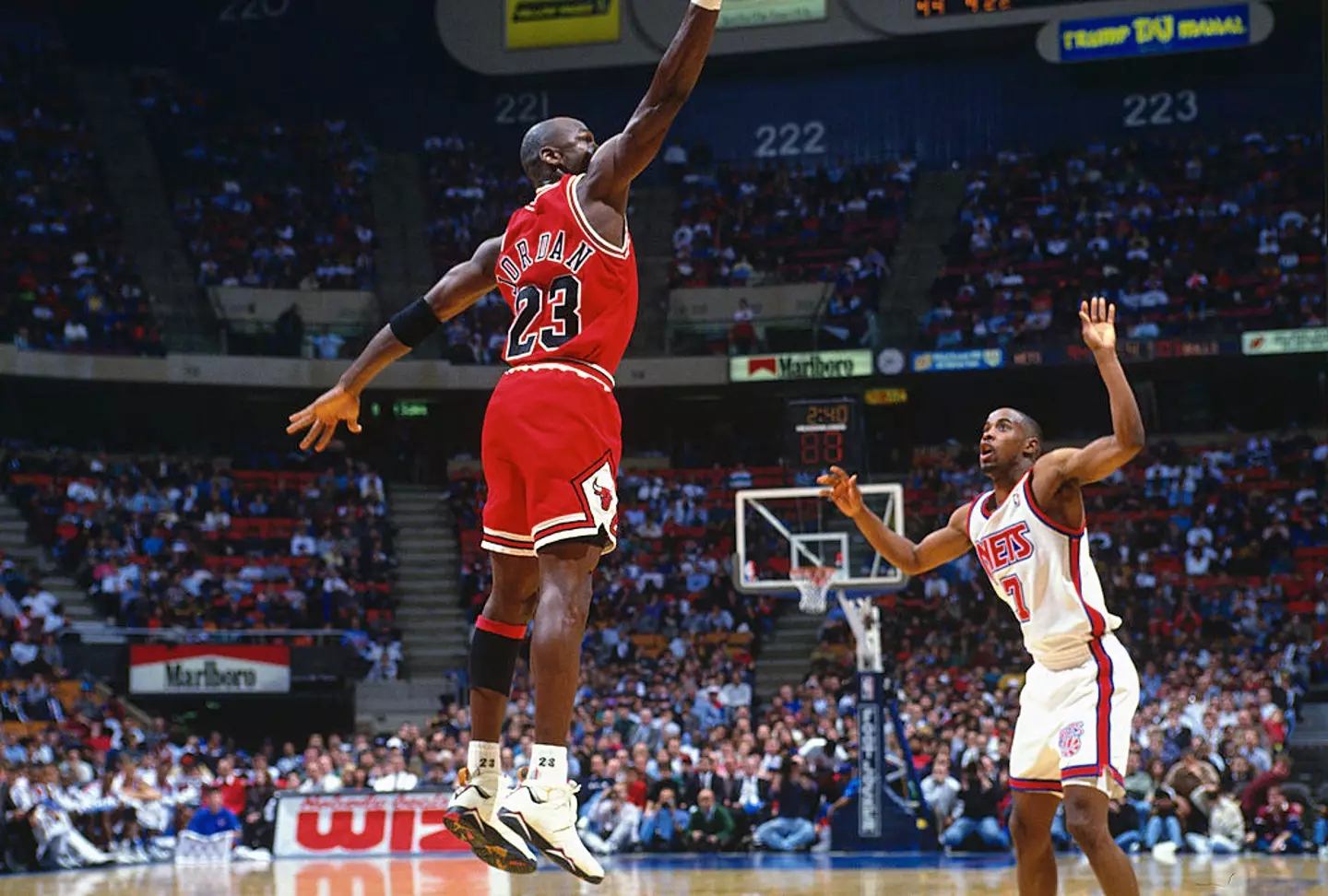
Topics: NBA, Basketball, Chicago Bulls, Michael Jordan
Sporting icons don't come much bigger than Michael Jordan, one of the NBA's greatest players of all-time.
Jordan was at the heart of the Chicago Bulls' NBA domination in the nineties, leading them to six championships in eight seasons between 1991 and 1998.
He was the NBA Finals MVP in all six of those years, the league MVP five times, and such a sporting colossus that his number was retired by a team he never represented.
The expectations were high even before Jordan made his NBA debut. In 1984, the Bulls drafted him as the third overall pick on the back of a stellar college career at the University of North Carolina.
Advert
Jordan revealed that he backed himself to make it in the big leagues in an interview with Marvin R. Shanken, the editor and publisher of Cigar Aficionado, a couple of years after his retirement from playing.
"People are going to love this," MJ said when Shanken asked about his first Bulls contract.
"It was a seven-year deal. I averaged about $850,000 a year. The first year's compensation was $650,000."
Jordan and his agent forecast that the Jordan name alone would attract people to NBA arenas and pack out Chicago Stadium.
"There was no signing bonus. We tried to get an attendance clause.
"They were averaging 6,000 people a game. So we thought, OK, we're going to ask for an attendance clause. At the time, Jonathan Kovler was the owner.
"My agent, David Falk, went in and asked for that. Kovler said, 'We're not going to give him an attendance clause because if we draft him at the three spot, he'd better put people in the seats.' So they never gave us an attendance clause."

As it turned out, Jordan fulfilled every expectation he and Falk could have imagined and had no trouble turning his celebrity and legendary status into profit.
It was calculated that his $33.1 million salary in 1997-98 – the year of his last NBA championship with the Bulls – would be worth more than $65 million in 2025.
Jordan told Shanken that the work ethic and drive that brought in the big bucks was inherited from his parents.
"I was taught to do it that way by my parents, and by the way they approached their daily activities," he said.
"It wasn't half-assed. So I practiced like I played. So when I played, playing was fun. Practice is work.
"You're working on the idiosyncrasies of what your game needs, so when the game comes, you showcase it and you utilise it. You build your game on it.
"Practice wasn't just a place to take time off. You work on things in practice."